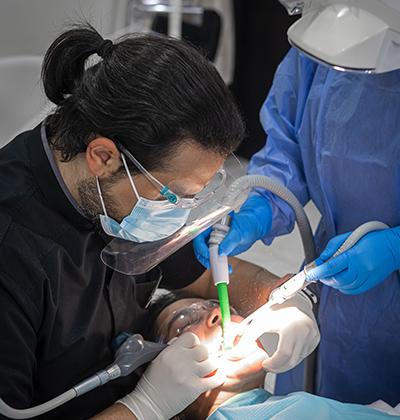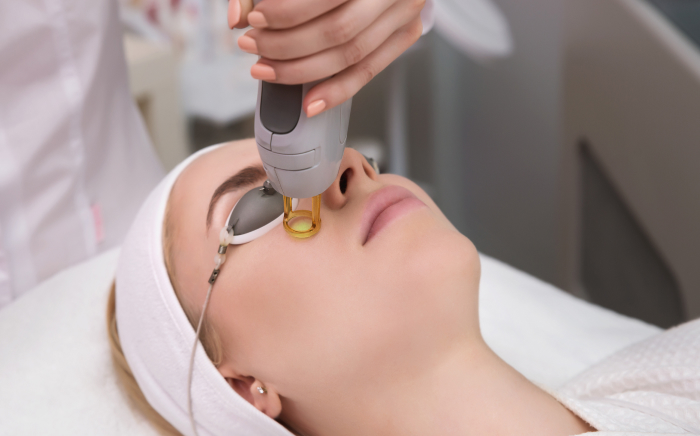If you want to maintain a healthy smile and good oral health, it’s important to pay a visit to the dentist. Dental check-ups will help keep your teeth healthy and avoid dental issues. But how often should you actually see your dentist?
In this blog, we will discuss why dental check-ups are essential and how often you should get routine check-ups at the dentist.
Why Routine Dental Check-Ups Are Important
A routine dental check-up is when your dentist conducts a thorough examination of your teeth, gums, and mouth.
Regular check-ups with a dentist can help find problems early and address dental issues before they escalate. Your dentist will be able to detect underlying conditions and recommend the right treatment.
Having routine check-ups with your dentist will also allow them to educate you on proper oral health practices, recommend the best dental products, and suggest lifestyle changes to improve your oral hygiene, all of which would be beneficial to your oral health.
Dental check-ups are important for maintaining good oral health, and that is why you should not skip going to the dentist.
How Often Should You Get Dental Check-Ups?
It is recommended that you visit the dentist every six months for a routine check-up and teeth cleaning. However, people who are at a higher risk for dental problems may require more frequent check-ups.
Individuals with oral health issues or medical conditions may need to schedule regular appointments with a dentist more often than the six-month interval. Here are some factors that affect the frequency of dental check-ups:
Oral Health Issues
You may have current oral health issues such as frequent cavities, gum disease, tartar build-up, or tooth decay. Or perhaps you have had these oral health issues in the past or have a family history of oral health issues.
In these cases, you may be required to visit a dentist more often than every six months in order to have your oral health monitored and managed effectively.
A Person’s Lifestyle
Your lifestyle is also crucial in determining how often you should get routine check-ups at the dentist. For instance, if you smoke or excessively drink alcohol, you may need to visit your dentist frequently, as these activities can contribute to dental issues.
If you often drink liquids that can stain your teeth or eat sugary or acidic foods, you may need to visit your dentist more frequently for teeth cleaning.
Medical Conditions
You may have medical conditions such as diabetes, a weakened immune system, or heart disease. People with these conditions may have an increased risk of oral health issues and would require more frequent visits to the dentist.
Additionally, if you are pregnant, you may need to see the dentist frequently as pregnant women are more susceptible to gingivitis or inflammation of the gums.
Age Group
Different age groups may require different frequencies of visits to the dentist. Children may require frequent routine dental check-ups to monitor the development of their teeth.
Seniors or older adults may also need to see the dentist more often than the six-month standard, as they might face more dental issues, such as gum disease or tooth loss.
Dental History
Past dental procedures or treatments can affect how often you should see a dentist. For instance, if you have gone through orthodontic treatments, dental implants, or bridges, you may require frequent check-ups for maintenance.
Similarly, if you are currently under a treatment plan, whether it’s for braces, Invisalign, or TMJ treatment, you may be required to have frequent check-ups with your dentist for monitoring.
Other Dental Problems
It’s important to note that if you experience problems such as bleeding gums, persistent toothache, or symptoms of TMJ jaw problems such as jaw pain or stiffness or clicking or popping sounds in the jaw, it is best not to ignore them and delay visiting the dentist.
When you have dental problems like these, visit your dentist as soon as possible. These dental problems may require you to visit your dentist more frequently for treatment.
What to Expect During Your Routine Dental Check-Up
During your dental check-up, your dentist will check and examine your teeth and gums for any problems or issues, such as cavities or gum disease. They will assess your overall oral health and may conduct tests, X-rays, or oral cancer screenings.
Your dentist will also ask about your lifestyle, general health, or dental history, as well as your teeth-cleaning habits. They will advise you on ways to improve your oral hygiene and teeth-cleaning habits.
You can also expect your dentist to thoroughly clean your teeth to remove plaque and tartar. Your dentist will also recommend treatment if needed.
Make the Most of Your Routine Dental Check-Ups
Make every visit to the dentist count. To do so, you can prepare some questions to ask. If you have any questions or concerns, write them down and tell your dentist about them.
Dental check-ups are also a time for patient education, so it’s a time when you can learn more from your dentist and be more informed about the best ways to manage your oral health.
Another thing you could do is maintain a dental journal. Take note of your teeth-cleaning habits and note any changes in your mouth. If you have any concerns or observations regarding your teeth or gums, discuss them with your dentist.
Choose the Best Dental Clinic for Your Routine Check-Ups
It’s best to visit a dentist every six months for routine check-ups and cleaning. However, if you have ongoing dental issues or concerns, you should visit a dentist as soon as possible. It is also important to choose the best dental clinic for the best services.
At Bella Medical Centre, we offer a comprehensive range of dental treatments to help you maintain optimal oral health. Our team of highly specialized dentists conduct regular check-ups, routine cleanings, and other treatments to help you maintain good oral health. Contact us today!

